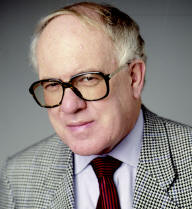John Jenkins Jan 10
Magazine

Now is the time for all good writers to begin re-cycling
By John Jenkins
Did you, by any chance, watch a film, The Gingerbread Man, which was shown on BBC One over Christmas? As somebody who enjoys insomnia I was up at 12.15a.m. when screening began. It had Kenneth Branagh in the lead – a vastly underrated actor – and a stellar cast including Robert Downey, Daryl Hannah and Robert Duvall.
The film was based on an original story by John Grisham who had once discarded the manuscript as unsatisfactory. The plot went something like this:
Lawyer Rick Magruder played by Branagh, stumbled drunk out of a party hosted by his firm one night and has a chance meeting with a woman named Mallory Doss who was a waitress at the party. She seemed to have lost her car. Rick drives the woman to her home and there they discover that her car is already parked there, It was apparently taken by her father, Dixon Doss, played by Duvall.
Rick and Mallory walk into the house arguing about the situation when Mallory carelessly undresses in front of Rick. He then spends the night with her. No surprises there.
Rick wakes up in her bed in the morning and later in the day Mallory buttonholes him, asking him to section her father because of his dangerous behaviour. Rick, now obsessed with Mallory and willing to do anything for her, is successful in having Dixon put on trial and sent to a mental institution. But Dixon’s friends rally to his cause and he is freed on appeal. Rick finds himself in trouble, trying to protect himself and his children from the danger he has unknowingly brought into his life.
Kenneth Branagh liked the story and agreed to do the movie but only if a highly-regarded director signed on as well. Robert Altman wanted to work with the British actor but only, as he told him, "If we can fool the audience by not making you the hero, by making you flawed." Once Altman agreed to do the film he re-worked the script. Altman said, "I just wanted to change the elements of these kinds of stories as much as I could. And then I wanted to stay out of the courtroom."
He also changed the setting to Savannah, and added the threat of a hurricane throughout the movie. In August 1997, after an audience test screening went badly, the studio brought someone else in to re-edit the movie without telling Altman and claimed that his version, "lacked tension and suffered from an inappropriate music score."
At one point, Altman said he wanted his name taken off the film. According to Branagh, the film previewed well but not up to the expectations of the studio. He said: "There's this enormous pressure to wrap everything up neatly and to resist things that stray from formula. Anything that suggests complexity in a character makes them unsympathetic in the eyes of some movie people. They see that as a great crime."
The studio backed down when their version tested worse than Altman's in a preview. The studio was upset that Altman had completely rewritten Grisham's script, making it more critical of lawyers.
In his review, Jay Carr of the Boston Globe said that the film "is fun junk...We're talking claptrap here, but it's more enjoyable than it has any business being, thanks to director Robert Altman and star Kenneth Branagh.
The story I like best about Grisham concerns his days as a struggling lawyer in the deep south: an environment far removed from those familiar with Ally McBeal and her legal partners. Unscrewing a bottle of cheap wine for dinner one night Grisham promised his wife: "When I’m a rich and famous author I’ll buy you fine wine with real corks in the bottle."
Some 250 million books later, not to mention an armful of films and even a discarded manuscript being bought, he has kept his promise. The wine chez Grisham is premier cru.
Although it wasn’t Grisham’s best story, I enjoyed it. But the moral of this story is: never throw anything away. I realise that Grisham could probably sell his laundry list to a publisher but for your new year resolution, dip down into that drawer and see what you can salvage. You may find a gem.
And after you have done that go through stories and features you have sold in the UK and see if you can sell them on for the American and other rights.
You’ll have to excuse me now. I remember a good piece I wrote on the Grand National which could go down well in America or Australia. And then there’s that short story which didn’t quite work but my severest critic said it would make a cracking opening for a novel. After all, we are always being urged to re-cycle everything.
Happy new year.
If you have a question you would like John to answer please email it to:
John@jayjay1.demon.co.uk
The latest book from John Jenkins is FAQs and the Answers for Ambitious Writers
Related Items in our Amazon Store
|
Publisher: Cooper Johnson Limited
Kindle Edition
Sales rank: 1,480,471
|

